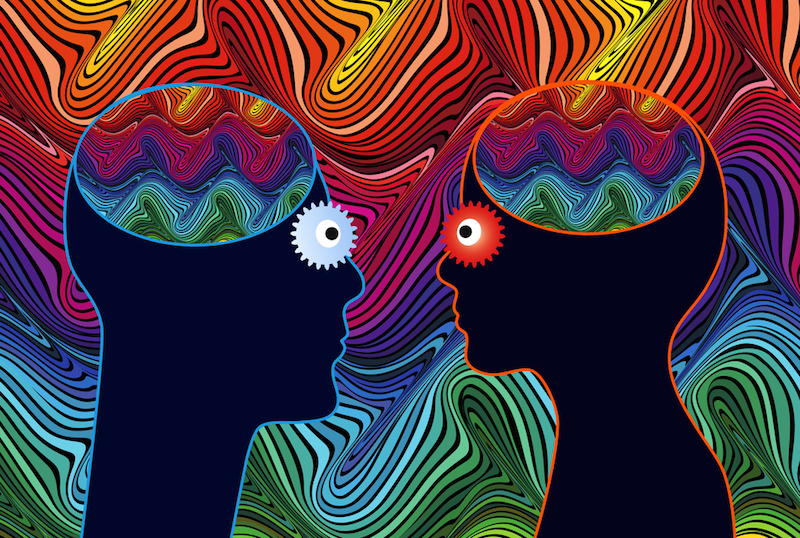Why People 'Lose Themselves' When They Take LSD

Get the world’s most fascinating discoveries delivered straight to your inbox.
You are now subscribed
Your newsletter sign-up was successful
Want to add more newsletters?

Delivered Daily
Daily Newsletter
Sign up for the latest discoveries, groundbreaking research and fascinating breakthroughs that impact you and the wider world direct to your inbox.

Once a week
Life's Little Mysteries
Feed your curiosity with an exclusive mystery every week, solved with science and delivered direct to your inbox before it's seen anywhere else.

Once a week
How It Works
Sign up to our free science & technology newsletter for your weekly fix of fascinating articles, quick quizzes, amazing images, and more

Delivered daily
Space.com Newsletter
Breaking space news, the latest updates on rocket launches, skywatching events and more!

Once a month
Watch This Space
Sign up to our monthly entertainment newsletter to keep up with all our coverage of the latest sci-fi and space movies, tv shows, games and books.

Once a week
Night Sky This Week
Discover this week's must-see night sky events, moon phases, and stunning astrophotos. Sign up for our skywatching newsletter and explore the universe with us!
Join the club
Get full access to premium articles, exclusive features and a growing list of member rewards.
When people take the psychedelic drug LSD, they may feel as if the boundary that separates them from the rest of the world has dissolved, as if they are connected with everything. Now, a new study has revealed a neural mechanism behind this phenomenon, called "ego dissolution."
The study's results suggest that further research on LSD and other psychedelic drugs, which is currently banned in the U.S. and elsewhere, could provide important insight into how the human brain works, the researchers said. They noted that the research should be done in carefully controlled settings.
Ego dissolution is not a universally positive or negative experience, said Enzo Tagliazucchi, a co-author of the new study and a neuroscientist at the Royal Netherlands Academy of Arts and Sciences in Amsterdam. "For some people, the experience of ego dissolution can be overwhelming and lead to anxiety, panic and what is usually called a 'bad trip,'" he told Live Science.
However, ego dissolution is also at the core of the treatment of death-related anxiety in terminal-stage cancer patients, which involves the use of psilocybin, another psychedelic that has some similarities with LSD, Tagliazucchi said.
For such patients, ego dissolution "can be a positive and transformative experience, leading to peace, acceptance, a new perspective on things," he said. [11 Odd Facts About ‘Magic’ Mushrooms]
The new findings also suggest that taking LSD may result in an enhanced sharing of information among different brain regions that, in turn, reinforces a stronger link between a person's sense of self and his or her sense of the rest of the world, Tagliazucchi said in a statement.
In the study, the researchers scanned the brains of 15 healthy people twice —after the people took LSD, and after they took a placebo.
Get the world’s most fascinating discoveries delivered straight to your inbox.
The researchers found that, when the people were high on LSD, different regions of their brains were more connected to each other, compared with when the people were given placebo. And the more connected these brain regions were in these people, the higher their sense of ego dissolution was, the researchers found.
The results suggest that people on LSD can experience ego dissolution because these brain regions become heavily interconnected, the researchers said.
However, ego dissolution does not automatically occur every time someone takes LSD, Tagliazucchi said. Whether LSD users experience it may depend, for example, on the dose of the drug they take. But when this phenomenon does occur, it does not last longer than the other effects of LSD, which typically last about 10 hours, he said. [Top 10 Mysteries of the Mind]
Tagliazucchi said that in his future research, he is planning to investigate, using neuroimaging and other methods, how other psychedelic drugs modify consciousness.
Scientists are also currently investigating whether other psychedelic drugs could potentially be used in the treatment of disorders such as depression and anxiety, the researchers said.
The new study was published today (April 13) in the journal Current Biology.
Follow Agata Blaszczak-Boxe on Twitter. Follow Live Science @livescience, Facebook & Google+. Originally published on Live Science.
 Live Science Plus
Live Science Plus





